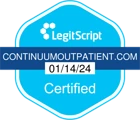Average Length of a PHP: How Long Does PHP Usually Last?
How Long is a PHP?: What Is a Partial Hospitalization Program?
A partial hospitalization program (PHP) is an intensive outpatient treatment program designed to provide structured support for individuals struggling with mental health issues. A PHP is a short-term intervention that can last up to 6 weeks.
Several factors determine the length of the program. Some of the most common among them include:1

Initial Assessment and Treatment Planning
How long is a PHP? The length of a PHP is determined during the initial assessment. Through this assessment, professionals evaluate the individual’s health, symptoms, and treatment goals. They develop a personalized treatment plan that outlines the necessary duration for the PHP.
The Severity of the Condition
The severity and complexity of the individual’s mental health condition also impact the duration of the PHP. Those with more severe conditions may require a longer program. The aim is to ensure proper stabilization and improvement.
Individual Response to Treatment
Treatment Goals
Collaborative Decision-Making
How Long is a PHP?: What Is the Typical Duration for Substance Use Recovery?
Substance Dependence
The severity and type of substance use disorder can impact the length of recovery. Some substances, such as alcohol or opioids, may require a longer time to overcome dependence compared to others. Factors like the duration and frequency of substance abuse can also affect the recovery timeline.
Co-occurring Mental Health Disorders
Over 9.2 million adults in the U.S. had a substance use disorder in 2021. If an individual has a co-occurring disorder, recovery may take longer. Examples of these conditions may include depression, anxiety, and bipolar disorder.2
Treating both disorders simultaneously is crucial for successful recovery but may require more time.
Individual Circumstances and Support Network
Treatment Approach and Compliance
- Therapy
- Counseling
- Medical interventions
- Behavioral interventions
Personal Motivation and Commitment
What Are the Advantages of Having a Flexible Duration for PHP?
Providing Enough Time for Learning and Skill Development
Adjusting Treatment Intensity and Progression
Minimizing Disruption and Improving Continuity of Care
Enhancing Engagement and Motivation
Preventing Burnout
How Long is a PHP: What Are the Potential Consequences of Prematurely Ending a PHP?
Lack of Skill Development
Limited Support System
Incomplete Assessment and Treatment Plan
Suboptimal Recovery
Limited Access to Integrative Care
Partial hospitalization programs often offer a well-rounded approach to mental health care. This includes therapy, help with medication, group activities, and other supportive services.
If a person completes the recommended treatment, they can take advantage of these resources. These comprehensive services provide a well-rounded approach to mental health treatment. This helps increase the odds of sustainable results.
How Long is a PHP: Are There Situations Where Participants Might Require an Extension of Their PHP?
Progress and Treatment Goals
Symptom Severity
Support System
Relapse Prevention
This is done by looking at things that might cause a relapse. Then, they make plans to lower the chance of relapse. If the PHP gets longer, people can improve how they handle stress and prevent setbacks better.
Treatment Plan Adaptability
Consent and Collaboration
How Does the Length of a PHP Impact the Depth and Intensity of Therapeutic Interventions?
Enhanced Opportunity for Individual Therapy
More Time for Group Therapy and Skill-Building
- Improving communication
- Developing coping skills
- Preventing relapse
Increased Exposure to Therapeutic Modalities
The length of a PHP affects the types of therapy that can be used. Trying different therapies helps experts understand what works best for each person.
- Cognitive-behavioral therapy
- Dialectical behavior therapy
- Expressive therapies
Strengthening Therapeutic Relationships
What Role Does Ongoing Support and Aftercare Play After Completing a PHP?
Continued Therapy and Counseling Access
- Discuss their progress
- Address any emerging issues
- Learn coping strategies
Medication Management
For those needing medication in their treatment, ongoing support includes medication management. This means regular check-ins with healthcare providers. The aim is to monitor medication effectiveness, adjust doses if needed, and manage side effects.
Support Groups and Peer Networks
Healthy Lifestyle Support
Self-Care and Wellness Practices
- Exercising often
- Eating healthfully
- Trying relaxation methods
- Pursuing hobbies or interests

How Can Continuum Outpatient Center Help?
At Continuum Outpatient Center, we offer a four-week partial hospitalization program. Our program provides access to a team of qualified professionals who provide personalized care.
Reach Out for Enduring Support and Encouragement
We offer a safe and comfortable environment for you to receive the help you need. Contact us today to learn more about how we can help you on your journey to recovery.
- https://www.ncbi.nlm.nih.gov/pmc/articles/PMC9395212/
- https://www.samhsa.gov/medications-substance-use-disorders/medications-counseling-related-conditions/co-occurring-disorders#:~:text=According%20to%20SAMHSA’s%202021%20National,have%20a%20co%2Doccurring%20disorder.
- https://www.ncbi.nlm.nih.gov/pmc/articles/PMC8882822/#:~:text=Despite%20the%20best%20medical%20treatment,conditions%20in%20China%20(9).
- https://www.ncbi.nlm.nih.gov/pmc/articles/PMC7813220/


